How Many Days After Your Period Can You Get Pregnant?

Quick Summary
- A woman's menstrual cycle plays a vital role in determining her chances of conceiving.
- The answer to the question how many days after your period can you get pregnant varies based on the length of the menstrual cycle.
- A girl can get pregnant after her period depending on her ovulation cycle.
Table of Contents
- Understanding the Menstrual Cycle
- Factors Affecting Ovulation Timing
- Getting Pregnant During Periods
- Conception after Menstruation
- Can You Get Pregnant Right After Your Period?
- Methods for Tracking Ovulation
- Tips for Increasing the Chances of Getting Pregnant
- When To Seek Medical Help?
- Takeaway
- Frequently Asked Questions
- References
Getting pregnant may seem to be an easy process, but it has multiple aspects that come into consideration. A woman's menstrual cycles play a vital role in determining her chances of conceiving. Most of you often wonder how many days after your period can you get pregnant. The answer varies based on the length of the menstrual cycle.
One must understand the ovulation process to gauge the best time for trying to get pregnant. Girls often ponder, "can I get pregnant 3 days after my period?” It is important to note that a girl can get pregnant after her period, depending on her ovulation cycle. While women can get pregnant by having regular unprotected sex, the chances tend to increase during their fertile window.
Understanding the Menstrual Cycle
Gauging the timing of ovulation and tracking one’s menstrual cycle is crucial when trying to conceive or avoid pregnancy. The release of an egg from the ovary, known as ovulation, can result in pregnancy if it’s fertilised by sperm.
Typically, ovulation occurs about 14 days before the start of the next period. However, since not all women have a 28-day cycle, ovulation can happen at different times in each cycle.
The fertile window - when one is most likely to conceive - typically lasts around five days before ovulation and on the day of ovulation. Sperm can survive inside the female reproductive tract for up to 5 days, so having intercourse during this fertile period can result in pregnancy.
While a lot of people think about how many days after your period can you get pregnant. Closely monitoring one’s ovulation cycle can help better understand a woman's reproductive health.
It's important to understand that while tracking the menstrual cycle and ovulation can increase the chances of conceiving, it's not a guaranteed method of contraception. If one is looking to avoid pregnancy, it's advisable to use other forms of birth control in addition to tracking the menstrual cycle.


Factors Affecting Ovulation Timing
Ovulation timing is influenced by various factors, including hormonal, environmental, and lifestyle factors. These can also impact the chances of getting pregnant just after periods. Some of the factors affecting ovulation timing are:
- Age: Ovulation timing is affected by age, with women tending to ovulate earlier in their menstrual cycle when they are younger and later in their cycle as they get older.
- Hormonal Fluctuations: Hormones such as follicle-stimulating hormone (FSH) and luteinizing hormone (LH) play a crucial role in regulating ovulation timing. Any hormonal imbalances, such as those caused by stress, illness, or certain medical conditions, can affect ovulation.
- Weight: Body weight can affect ovulation timing, with both underweight and overweight women having a higher risk of ovulatory dysfunction.
Women often think about how many days after your period can you get pregnant. Weight tends to play a vital role in determining one’s chances of conceiving. - Environmental Factors: Exposure to environmental factors such as toxins, pollutants, and certain chemicals can disrupt ovulation and affect fertility.
- Medications: Certain medications can affect ovulation, such as chemotherapy drugs, antidepressants, and some types of birth control.
- Genetics: Girls often think - “can I get pregnant 3 days after my period?” Genetics tend to play an integral role in ovulation timing, with some women genetically predisposed to ovulate earlier or later in their menstrual cycle. This can lead to pregnancy after periods.
Understanding these factors and how they affect ovulation timing can help women optimize their chances of conceiving and identify any potential issues that may require medical attention.
Getting Pregnant During Periods
Many women have doubts about how many days after your period can you get pregnant. However, it is highly unlikely to get pregnant during periods, but it is not impossible.
A woman's menstrual cycle is divided into three phases: the follicular phase, the ovulation phase, and the luteal phase. Menstruation occurs during the luteal phase, which is the shedding of the uterine lining when an egg is not fertilised.
However, there are some situations where a woman can get pregnant during her period. This can occur if a woman has a shorter menstrual cycle and ovulates shortly after her period.
Sperm can survive in the female reproductive tract for up to five days, so if a woman has sex towards the end of her period and ovulates within the next few days, there is a chance of pregnancy.
Moreover, some women may experience irregular periods or spots during ovulation, which can be confused with menstrual bleeding. This can lead to unprotected intercourse during ovulation, resulting in pregnancy.
It's important to note that the chances of getting pregnant during periods are significantly lower compared to the fertile window. If you're trying to conceive, having intercourse during the fertile window is the best way to increase your chances of getting pregnant.
Conception after Menstruation
Conception immediately after menstruation is less likely but still possible in some scenarios. The chances of getting pregnant are highest during the fertile window, which is typically around five days before ovulation and on the day of ovulation. In a few situations, a woman could get pregnant right after her period.
While people think can a girl get pregnant after her period, it is essential to understand the role of her menstrual cycles in determining the chances of getting pregnant. Certain situations where women can conceive after their period include the following:
- Length of the Menstrual Cycle: If a woman has a shorter menstrual cycle, which is less than 28 days, her ovulation may occur closer to the end of her period.
In this case, having unprotected sex towards the end of her period or soon after it may lead to pregnancy. This can also help women find answers to questions like - how many days after your period can you get pregnant.
Alternatively, if a woman has a longer menstrual cycle, ovulation may occur later than the typical 14 days before her next period. In this case, having sex towards the end of her period or soon after it could result in pregnancy if ovulation occurs earlier than expected. - Incorrectly Counting the Cycle Days: Miscounting a woman's cycle days can potentially lead to an unplanned pregnancy.
This can happen when a woman miscalculates the length of her menstrual cycle or fails to accurately track her ovulation, resulting in inaccurate estimations of the fertile window.
Moreover, if a woman is not tracking her menstrual cycle, she may not be aware of her ovulation pattern and may not be able to accurately determine her fertile window. This can lead to unprotected intercourse at the wrong time, increasing the risk of pregnancy.
Additionally, relying solely on calendar-based methods of birth control, such as the rhythm method, can also result in a miscounting and unplanned pregnancy. These methods are not always reliable as they do not account for variations in menstrual cycles and ovulation patterns.
Can You Get Pregnant Right After Your Period?
It is possible for a woman to get pregnant right after her period, although the likelihood is relatively low. The menstrual cycle typically lasts 28 days, with ovulation around day 14.
However, some women may have shorter or longer cycles, affecting ovulation timing. If ovulation occurs earlier than expected, it is possible to get pregnant if intercourse occurs during or shortly after the period.
Methods for Tracking Ovulation
Tracking ovulation is monitoring a woman’s menstrual cycle to determine the most fertile period when she is most likely to conceive. While people think, “can a girl get pregnant after her period?” tracking one’s ovulation cycle can help get a closer look at the exact likeliness of conception.
There are various methods to track ovulation, including:
- Basal Body Temperature (BBT) Method: This involves taking a woman's temperature every morning before getting out of bed. The BBT rises after ovulation, indicating that ovulation has occurred.
- Ovulation Predictor Kits (OPKs): These are home testing kits that detect the luteinizing hormone (LH) surge that occurs just before ovulation.
- Cervical Mucus Method: This method involves monitoring changes in the quantity and texture of cervical mucus, which become thinner, clearer, and more stretchy during ovulation.
- Calendar Method: This involves tracking the menstrual cycle over several months to predict when ovulation is likely to occur. This method is less reliable than other methods.
- Saliva Ferning Method: This involves examining a woman's dried saliva under a microscope. Saliva changes to a fern-like pattern during ovulation.
Tips for Increasing the Chances of Getting Pregnant
While getting pregnant depends on the fertilization of a woman’s eggs, there are certain measures one can take to increase their chances of getting pregnant just after periods. Below are some of the most sought-after tips that can boost one’s chances of conceiving:
- Understand your menstrual cycle: Understanding your menstrual cycle and the timing of ovulation is crucial when trying to conceive. Tracking your menstrual cycle, either through an app or with a calendar, can help identify your most fertile days.
- Have regular sex: It is essential to have regular sex, especially during the most fertile period. Having sex every 2-3 days throughout the menstrual cycle can improve the chances of conception.
- Maintain a healthy weight: Being overweight or underweight can affect ovulation and fertility. Maintaining a healthy weight can improve the chances of conceiving.
- Eat a healthy diet: A balanced and nutritious diet can support reproductive health. A diet rich in fruits, vegetables, whole grains, and lean protein can improve fertility.
- Avoid smoking, alcohol, and drugs: Smoking, alcohol, and drugs can reduce fertility and increase the risk of birth defects. Avoiding these substances can improve the chances of conception.
- Reduce stress: High levels of stress can affect fertility. Finding ways to reduce stress, such as exercise, yoga, or meditation, can improve the chances of conceiving.
- Consult with a healthcare provider: If you are having difficulty getting pregnant, consult with a healthcare provider. They can help identify any underlying conditions that may be affecting fertility and provide guidance on the best course of action.
When To Seek Medical Help?
If you're trying to conceive and experiencing irregular periods or have been unsuccessful for more than a year, it may be time to consult a medical professional. Irregular periods could indicate underlying medical conditions that may impact your fertility.
Some conditions, such as Polycystic Ovary Syndrome (PCOS), could lead to irregular ovulation and lower your chances of conception. Seeking medical assistance can help diagnose and manage any underlying conditions.
Moreover, consulting with a healthcare provider is advisable if you've been trying to get pregnant for over a year without success. They can provide guidance and suggest fertility treatments such as ovulation induction or In-vitro fertilization (IVF) if required.
It's crucial to remember that seeking medical help does not necessarily imply that you require fertility treatments. While you wonder - “can I get pregnant 3 days after my period?” you must speak to your doctor and better understand your reproductive health.
Simple lifestyle changes, such as maintaining a healthy weight or reducing stress, can increase your fertility and the probability of conceiving.
Takeaway
If you're wondering how many days after your period can you get pregnant, the answer varies based on the length of your menstrual cycle. Understanding the ovulation process and tracking your menstrual cycle is crucial when trying to conceive or avoid pregnancy.
The fertile window typically lasts around five days before ovulation and on the day of ovulation, during which sperm can survive inside the female reproductive tract for up to five days, leading to pregnancy.
Factors such as age, hormonal fluctuations, weight, environmental factors, medications, and genetics affect ovulation timing. Identifying them can help you optimise your chances of conceiving and identify any potential issues requiring medical attention.
While you may think about the chances of getting pregnant just after your periods, you must monitor your cycles closely. It is highly unlikely to get pregnant during periods, but it is not impossible. However, the chances of getting pregnant during periods are significantly lower than the fertile window.
You may also turn to experienced doctors and consult with them to ensure an accurate cycle count. We at HexaHealth can help track your ovulation process and provide expert guidance for getting pregnant safely. Our seasoned doctors can also suggest suitable measures to increase your chances of getting pregnant.
Suggested Reads
To read more on what factors affect pregnancy, visit the following links:
Frequently Asked Questions
How many days after your period can you get pregnant?
Can I get pregnant 3 days after my period?
Can a girl get pregnant after her period?
What are the chances of getting pregnant just after periods?
What is the best time to get pregnant after periods?
Can I get pregnant 11 days after my period?
How long can sperm live inside you to get pregnant?
How many days after your period is it safe to avoid pregnancy?
What age are you most fertile?
How does age affect fertility?
How to chart your menstrual cycle correctly?
References
All the articles on HexaHealth are supported by verified medically-recognized sources such as; peer-reviewed academic research papers, research institutions, and medical journals. Our medical reviewers also check references of the articles to prioritize accuracy and relevance. Refer to our detailed editorial policy for more information.
Last Updated on: 2 September 2024
Reviewer

Dr. Arti Sharma
MBBS, DNB Obstetrics and Gynaecology, Diploma In Cosmetic Gynaecology
9 Years Experience
Dr Arti Sharma is a well-known Obstetrician and Cosmetic Gynaecologist currently associated with Aesthetica Veda in Bengaluru. She has 9 years of experience in Obstetrics and Cosmetic Gynaecology and worked as an expert Obstetrician...View More
Author
HexaHealth Care Team
HexaHealth Care Team brings you medical content covering many important conditions, procedures falling under different medical specialities. The content published is thoroughly reviewed by our panel of qualified doctors for its accuracy and relevance.
Expert Doctors (10)
NABH Accredited Hospitals (5)
Latest Health Articles





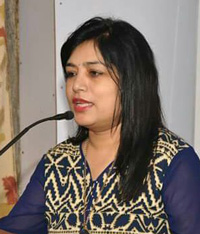
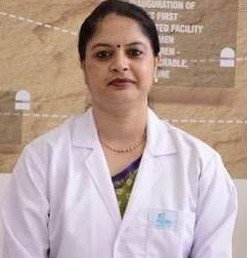
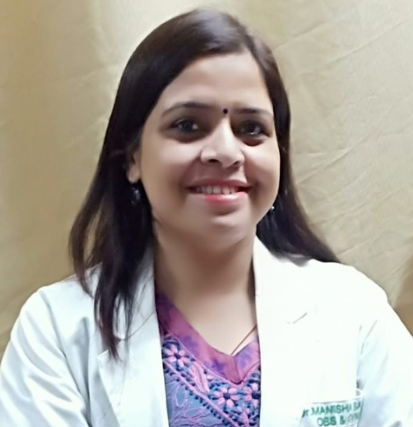
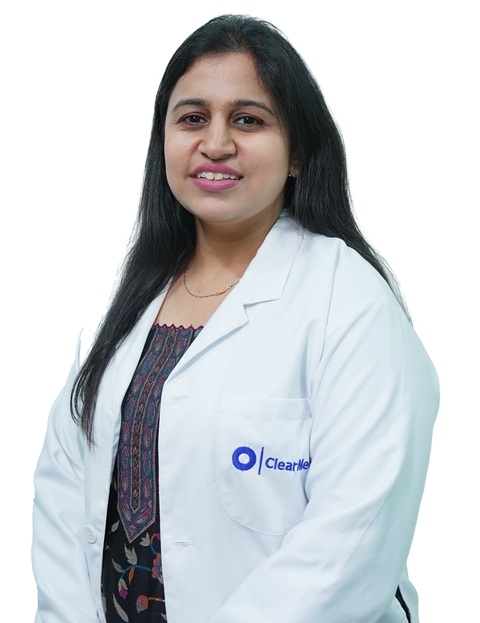

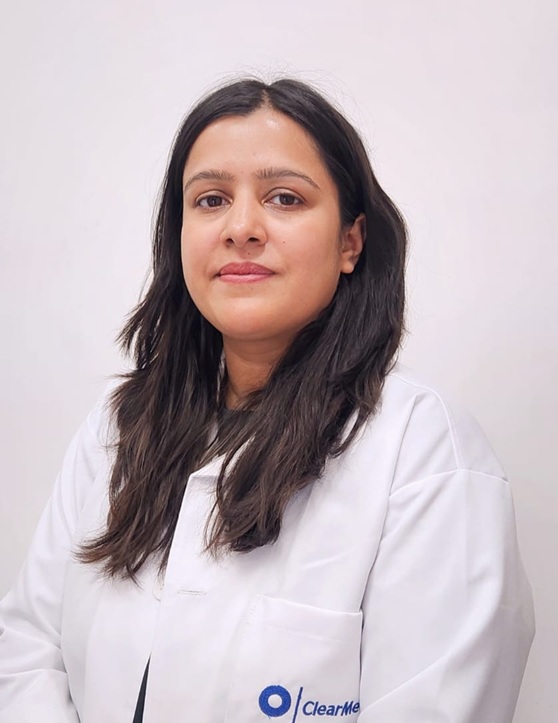












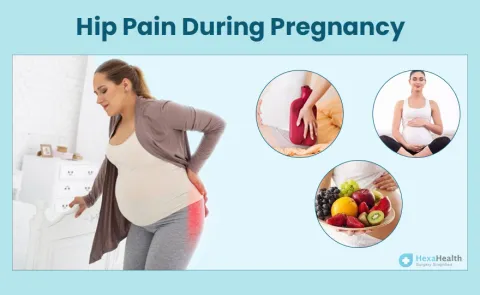


 Open In App
Open In App